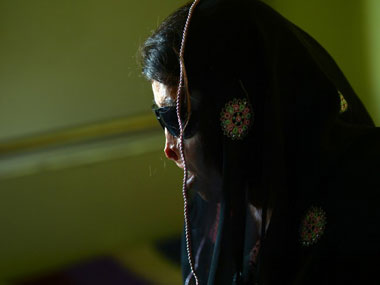Pune, Jan 2: A hospital here founded by the doctor-son of a daily labourer and which celebrates the birth of every girl child will now set up a one-of-a-kind burns centre that will treat all women victims of acid attacks or burns free of charge.

"Women who are targets of acid attacks or dowry and torture burns shall be given completely free treatment at this centre. However, if there are male victims, they will be charged as usual," Ganesh Rakh, doctor and founder-owner of Medicare Hospital of Hadapsar, a suburb of Pune, said.
The idea came to Rakh a couple of months ago when a 22-year-old newly-married woman became a victim of dowry harassment. She was allegedly set ablaze by her in-laws and was brought to his hospital
"We don't have the specialised treatment for such cases and the sole private hospital in Pune quoted Rs.30,000 per day for treatment for an indefinite period," Rakh said.
When he informed the woman's family, they said if they had that kind of money, they would have agreed to the dowry demands and their daughter would have escaped her current fate.
Rakh was moved by the woman's plight and decided to do something about it.
After consultations with colleagues and experts, he decided to set up a burns centre that offers free treatment to women victims from any part of the country.
Rakh's "Save the Girl Child" campaign, launched Jan 3, 2012, has already earned him a huge fan following as it celebrates its third anniversary this Saturday.
In the past three years, the 50-bed maternity hospital has conducted 314 free deliveries of female infants, natural or through Caesarian section.
In August 2014, Rakh took another step of opening a 15-bed Neonatal Intensive Care Unit (NICU) at a cost of Rs.2 million.
The unit offers free treatment and care to all premature female newborns till they are fit to go home.
"In our modest way, we have tackled the issue of female births, taking care of them and now we shall pay attention to their future," Rakh said, explaining the philosophy behind the burns centre.
He plans to use the excess income from the maternity hospital (where male child birth is charged normal rates) and the NICU (ditto for male child) in the burns centre.
"It will be the most modern centre of its kind in India and will cost around Rs.10 million. I have sought a bank loan, but in case there are delays, a private firm has assured us all the required equipment on a hire-purchase basis," Rakh said.
The facility will be inaugurated in April, he said.
Rakh said that even 68 years after independence, many girls become victims of acid attacks, are slashed by blades, and married women are burnt for not meeting dowry demands.
"Anything happens to them and they are disfigured and shattered for life. The tragedy is that a vast majority are unable to afford the expensive treatment. There are government hospitals, but the facilities there are basic and mostly intended to save the victim's life.
"But what about preparing the victim to face society and living a normal life again, as nobody looks at them, socialises or employs them and all avoid them," he said.
The burns centre will have a care department, a sophisticated operation theatre, a burns ICU, plus plastic surgery and other post-operative requirements.
"It will be a one-stop burns centre. The victims who come here will step out with a new look to face life confidently," Rakh assured.
Given the financial constraints, at least a dozen plastic surgeons and burns care specialists from Pune and other parts of Maharashtra have already committed to offer free services to patients.
Quoting current figures, Rakh said a victim with just 40 percent burns would need to spend a minimum of Rs.1.5-2.5 million for complete treatment -- which will be done for free at the Medicare Burns Centre.
He said the hospital will also arrange for the lodging of the victim's relatives so that they are not compelled to live in miserable conditions outside.
When he started the hospital in 2007, after begging for loans from friends and relatives, most people ridiculed his plans.
"If you don't charge for female child's deliveries, how will you repay your Rs.1 crore loan?" aghast lenders demanded.
The son of a daily labourer Adinath (now 68 years old), and domestic worker Sindu (now 61), Rakh who qualified as a doctor in 2001, set up a roaring private practice, simultaneously completed his gynaecology specialisation and went ahead with his pet plans from day one.
Hailing from a very poor family in Solapur, his parents migrated to Pune in search of work. As Rakh was good in academics, he secured scholarships in school and college till his medical degree. "It's now my turn to repay society," Rakh said.





Comments
Add new comment